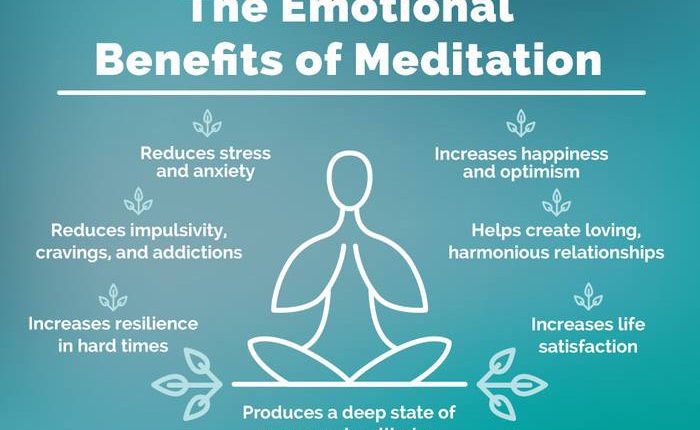
5 Benefits of Mindfulness Meditation
The post is developed in partnership with BetterHelp.
The human brain is like a muscle: the more you use it and exercise it, the stronger and more agile it gets. And like muscles, there are countless types of exercises you can do to keep your brain in good shape. One example is mindfulness meditation: a mental training practice that involves focusing your attention on fully experiencing the present moment, without judgment or dwelling on past or future worries.
As a form of meditation, mindfulness is involved in several religious and secular traditions, including Buddhism, Hinduism, and more recently, non-religious meditation as a practice for cultivating mental health and inner peace. People have been practicing mindfulness meditation for thousands of years, whether on their own or as part of a larger spiritual tradition.
In this article, we’ll review 5 science-backed benefits of mindfulness meditation.
Benefits of mindfulness meditation for your physical and mental health
Practicing mindfulness meditation on a regular basis offers the following benefits.
Helps manage and prevent depression
Mindfulness meditation teaches your brain how to observe and control negative emotions, so they do not control you. Studies suggest that practicing mindfulness helps relieve symptoms of depression and could even prevent them from returning in the future. In fact, many mental health professionals like to incorporate mindfulness meditation as a form of therapy to help clients become more aware and accepting of their thoughts.
Boosts memory and attention span
Mindfulness meditation asks you to focus your attention on the present moment and the present moment only. So with time and practice, mindfulness trains your brain to stay engaged in whatever activity you’re doing, instead of drifting off to unrelated thoughts.
Research shows that people who are trained in mindfulness have better short and long-term memory. For example, one study showed that those who participated in mindfulness meditation training were more likely to recall information than those who took part in a creative writing course.
The results of the study also suggested that those who meditated showed changes in the hippocampus – a region of the brain responsible for processing and retrieving – which didn’t happen in the creative writing group.
Lowers stress and anxiety
Perhaps the most well-known benefit of mindfulness meditation is its ability to quickly lower stress and reduce symptoms of anxiety. But what many people don’t know is that practicing mindfulness can actually change structures within the brain.
In one 2011 study by researchers at Harvard University using magnetic resonance imaging technology (MRI), participants who went through eight weeks of mindfulness-based therapy showed brain changes in areas responsible for regulating emotions. The same participants also displayed decreased activity areas of the brain associated with fear, stress, and anxiety.
Read more about mindfulness and mental health here.
Helps relieve pain
Mindfulness meditation is not just great for your mental health; it’s also a fantastic tool for managing chronic pain. How you feel and perceive pain is connected to your state of mind. For instance, people who have depression can develop unexplained physical pain. And, by the same token, chronic pain has been shown to worsen depressive symptoms.
There are several ways mindfulness meditation helps with pain. For starters, sitting down to meditate causes your brain to release endorphins, which act as the body’s natural pain relievers. It also trains your brain to go into a calmer state of mind, helping your muscles relax and easing tension.
Mindfulness meditation has been shown to help with:
- Headaches and migraine
- Low back pain
- Menstrual cramps and premenstrual syndrome (PMS)
- Knee pain
- Arthritis pain
- Fibromyalgia
- Osteoarthritis pain
Increases self-esteem and assertiveness
Mindfulness meditation can boost your self-awareness and increase your self-esteem by helping you accept and embrace every part of yourself. It helps you realize that many of your doubts and insecurities are not worth holding onto, so you start relating to yourself from a place of love and kindness, rather than ego and criticism.
Plus, one study published in the journal Mindfulness showed that those who underwent a three-week training on mindfulness and self-compassion experienced a significant reduction in body shame and dissatisfaction.

